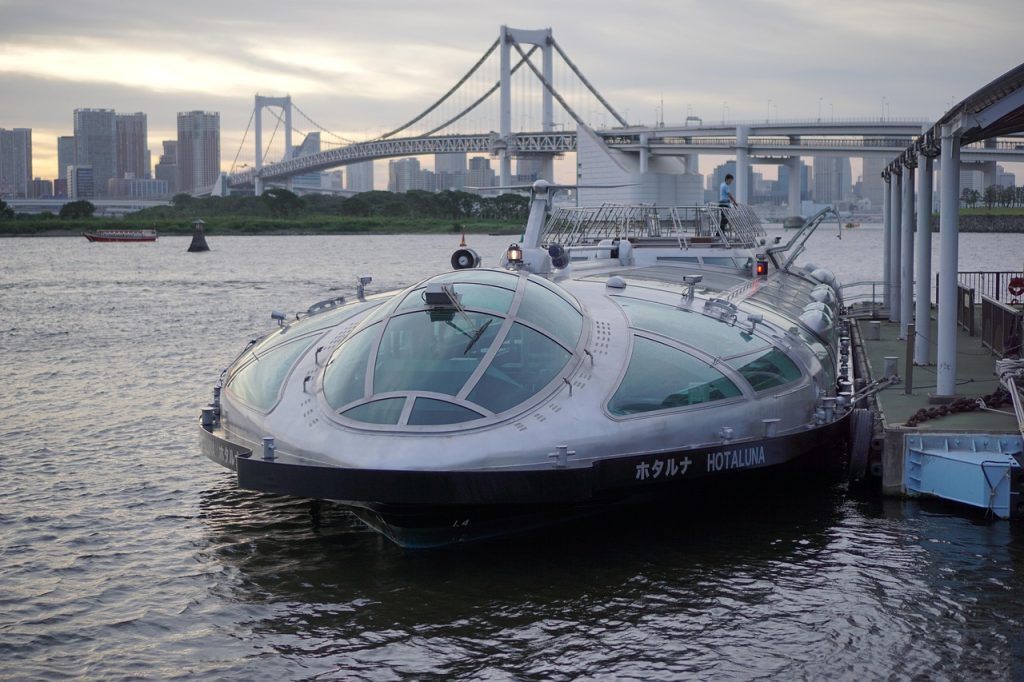On May 23, NYK Group made a significant leap toward sustainable shipping with the unveiling of Japan’s first fully battery-powered electric workboat, named e-Crea. The introduction of this innovative vessel marks a crucial milestone in the journey toward decarbonizing maritime operations and advancing cutting-edge green technologies.
A Revolutionary Electric Vessel
The e-Crea is a compact vessel measuring approximately 30 feet (9 meters) in length. Unlike traditional workboats equipped with onboard diesel generators, the e-Crea operates solely on battery power. These batteries are charged through shore-based facilities located at the Keihin Dock’s Koyasu Shipyard in Yokohama City. Designed with a crew capacity of up to 14, the vessel plays a pivotal role in supporting docking and undocking operations for tugboats at the shipyard.
NYK Group emphasizes that fully electric vessels like e-Crea are among the most promising solutions for achieving sustainable shipping. As such, the development and deployment of this vessel represent a critical step forward in revolutionizing maritime technology.
Overcoming Design Challenges
The construction of the e-Crea posed several unique challenges for Keihin Dock, NYK’s shipbuilding subsidiary. One of the primary obstacles was managing the additional weight introduced by the electric propulsion system, which includes substantial battery modules. Initially, the added weight exceeded expectations, raising concerns about the vessel’s balance and stability.
To address these issues, the shipbuilders reconfigured the placement of key components, such as equipment and cabling. This redesign optimized the internal space and ensured the vessel’s stability, maintaining its operational efficiency while accommodating the innovative propulsion system.
Managing Safety Concerns
Incorporating large batteries and electric motors introduced safety concerns, particularly related to heat generation. Elevated temperatures from these systems can increase the risk of fire, posing a significant challenge to the vessel’s design and operation. To mitigate these risks, Keihin Dock implemented a multi-faceted approach:
- Advanced Cooling Systems: The vessel features layered water-cooling systems and integrated air ducts to regulate temperatures effectively.
- Enhanced Fireproofing: The battery room is equipped with improved fireproofing measures to minimize potential hazards.
- Gas Protection and Ventilation: Additional safety features include safeguards against hazardous gases and an optimized ventilation system to ensure a safe operating environment.
These measures collectively enhance the vessel’s safety profile, ensuring its reliable operation in various maritime conditions.
Superior Performance and Environmental Benefits
In addition to its zero-emissions capability, the e-Crea boasts several operational advantages. NYK highlights the vessel’s significantly quieter performance compared to conventional diesel-powered ships. This reduced noise level enhances the working environment for crew members and minimizes disruption in marine habitats.
The vessel’s compact hull design also offers exceptional manoeuvrability, making it ideal for operations in confined spaces. This feature is particularly beneficial for its primary role of assisting with docking and undocking at the Koyasu Shipyard. By combining efficiency, precision, and environmental friendliness, the e-Crea sets a new standard for workboat performance.
Driving Maritime Decarbonization
The launch of the electric workboat e-Crea underscores NYK’s commitment to advancing low- and zero-carbon vessel operations. The company views the vessel as a testbed for pioneering electric propulsion technologies, providing valuable data and insights to guide future developments.
NYK has ambitious plans to expand the application of electric propulsion systems within its fleet. The company’s next major project involves the construction of an electric-propulsion tugboat, scheduled for completion in December 2026. Insights gained from the e-Crea’s operation will play a crucial role in refining the design and functionality of this larger vessel.
Paving the Way for Larger Electric Vessels
Beyond workboats and tugs, NYK aims to extend electrification technologies to larger vessels, including cargo ships. The company’s long-term vision involves scaling up the technology to accommodate the unique demands of large-scale maritime operations. Achieving this goal will require continued innovation and collaboration across the industry.
NYK’s efforts align with global initiatives to decarbonize the shipping industry, which accounts for a significant portion of greenhouse gas emissions. By championing the development of fully electric vessels, the company is contributing to a cleaner and more sustainable future for maritime transportation.
A Model for the Future
The unveiling of the Japan’s first electric workboat e-Crea serves as a powerful example of how technological advancements can drive environmental progress. The vessel’s successful deployment demonstrates the feasibility of fully electric propulsion in maritime operations, paving the way for broader adoption across the industry.
As the maritime sector grapples with the dual challenges of reducing emissions and maintaining efficiency, the e-Crea represents a beacon of hope. It showcases the potential of innovative solutions to transform the industry while addressing critical environmental concerns.
Conclusion
The launch of Japan’s first fully electric workboat, e-Crea, marks a significant milestone in sustainable shipping. By overcoming design challenges, addressing safety concerns, and delivering superior performance, the vessel exemplifies the transformative power of technology in addressing environmental issues. NYK’s commitment to advancing electrification technologies reflects a bold vision for the future of maritime transportation, one that prioritizes sustainability without compromising operational efficiency.
Through continued innovation and collaboration, the lessons learned from the e-Crea will shape the next generation of electric vessels. This pioneering effort underscores the importance of embracing new technologies to create a cleaner, greener, and more sustainable maritime industry.
